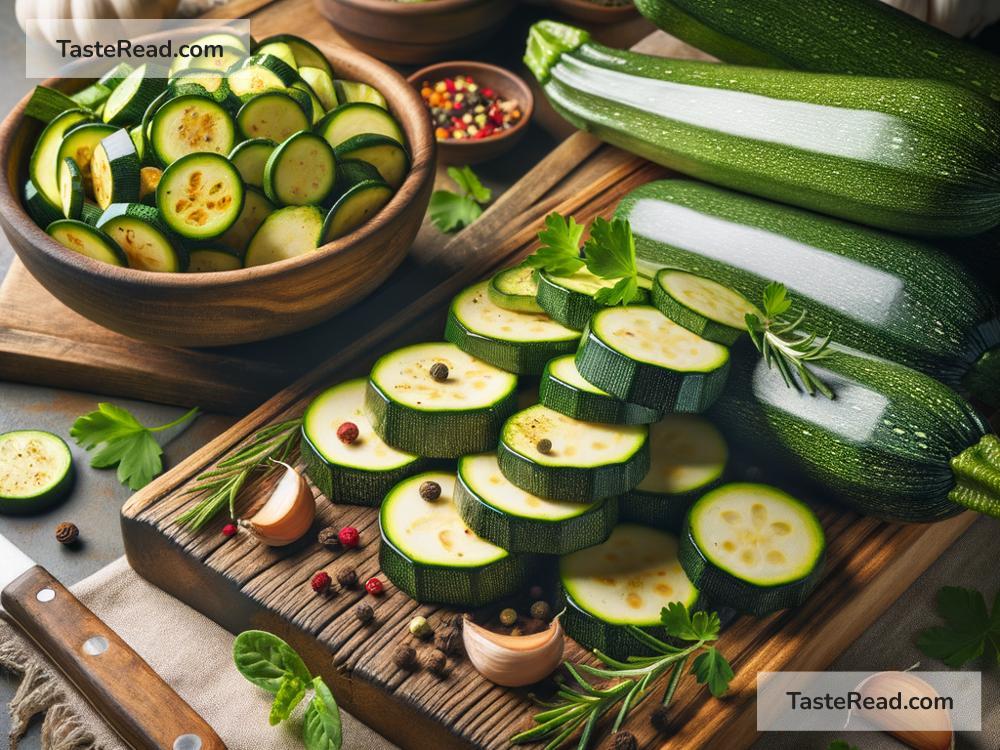Can Zucchinis Improve Your Digestion?
Zucchinis, often called summer squash, are a versatile and delicious vegetable that can be enjoyed in a variety of dishes. From spiralized zucchini noodles to grilled slices on the barbecue, this green veggie has earned its place in kitchens around the world. But beyond their culinary versatility, zucchinis are also packed with nutrients that can benefit your health—and one of their key benefits is improving digestion. Let’s dive into how zucchinis may help your digestive system stay happy and healthy.
Zucchinis Are High in Water Content
One of the standout features of zucchinis is their high water content. They are made up of about 95% water, which makes them hydrating and refreshing. But how does this benefit digestion?
Water plays a vital role in breaking down food and moving it through the digestive system. Without enough hydration, the body can struggle with constipation, making bowel movements slow and uncomfortable. Eating foods like zucchinis that are rich in water can help soften stools and make digestion smoother. So, if you’re looking to boost hydration while supporting your digestive health, zucchini is a great choice.
Rich in Fiber for Healthy Digestion
Fiber is another key component of zucchinis that makes them digestion-friendly. Fiber is a type of carbohydrate that the body can’t fully digest, but it is crucial for keeping the digestive system moving properly. There are two types of fiber: soluble fiber and insoluble fiber.
- Soluble fiber absorbs water and turns into a gel-like substance in the stomach. This helps slow digestion and can improve nutrient absorption.
- Insoluble fiber doesn’t dissolve in water but adds bulk to stools. This helps food pass through the intestines more easily, reducing the risk of constipation.
Zucchinis contain a good mix of both types of fiber, which makes them ideal for balancing your digestive process. A diet rich in fiber feeds healthy gut bacteria, promotes regular bowel movements, and supports overall gut health.
Gentle on the Stomach
Unlike some other fruits and vegetables that may cause bloating or gas, zucchinis are gentle on the stomach and easy to digest. They are low in natural sugars and resistant starches that can sometimes ferment in the gut and lead to unpleasant digestive issues. This makes zucchinis a great option for people with sensitive stomachs or digestive disorders like irritable bowel syndrome (IBS).
Whether served raw or cooked, zucchinis are often an easy-to-tolerate vegetable that can be incorporated into your diet without irritating your digestive system.
Contains Essential Nutrients for Gut Health
Zucchinis are also loaded with essential vitamins and minerals that indirectly help digestion. Here are a few nutrients in zucchinis that support overall gut health:
- Vitamin C: This antioxidant helps reduce inflammation in the digestive tract, which can improve gut function.
- Potassium: Zucchinis are a good source of potassium, an electrolyte that promotes muscle contractions in the digestive system. This keeps food moving smoothly through the intestines.
- Magnesium: Magnesium plays a role in relaxing the muscles of the digestive tract, which can prevent cramping and discomfort.
Together, these nutrients ensure that your digestive system functions efficiently and stays healthy.
Can Zucchinis Prevent Digestive Issues?
Including zucchinis in your diet can help prevent common digestive problems like constipation and bloating. Because they are high in fiber and water, they keep your bowel movements regular and your hydration levels balanced. By soothing the digestive tract and reducing inflammation, zucchinis may even help with minor gastrointestinal discomfort.
Additionally, fiber-rich foods like zucchinis can make you feel fuller for longer. This can prevent overeating, which is often a trigger for digestion-related issues.
How to Add Zucchinis to Your Diet
There are so many easy and tasty ways to add zucchinis to your meals. Here are a few ideas:
- Make Zucchini Noodles (Zoodles): Swap traditional pasta for zucchini noodles to reduce your carbohydrate intake while boosting your fiber.
- Add Slices to Salads: Thinly slice raw zucchini and toss it into salads for added texture and crunch.
- Bake Zucchini Bread: Incorporate zucchinis into baked goods like muffins and bread for a sneaky way to add extra nutrients.
- Grill or Roast: Slice zucchinis, drizzle them with olive oil, and roast or grill them for a flavorful side dish.
- Blend into Soups and Smoothies: Zucchinis blend well with other ingredients, making them a great addition to soups and even green smoothies.
Whether raw or cooked, zucchinis are easy to include in your everyday meals.
Conclusion
Zucchinis are more than just a tasty vegetable—they’re a powerhouse of hydration, fiber, and essential nutrients that support healthy digestion. By including zucchinis in your diet, you can help prevent digestive issues like constipation, reduce inflammation in your gut, and keep your digestive system functioning smoothly.
Plus, they’re so versatile that you’ll never get bored of eating them. Whether you’re spiralizing them into noodles, roasting them as a side dish, or sneaking them into muffins, zucchinis can work wonders for your health. So, if you want better digestion and a healthier gut, consider adding this humble green vegetable to your plate more often. Your stomach will thank you!


